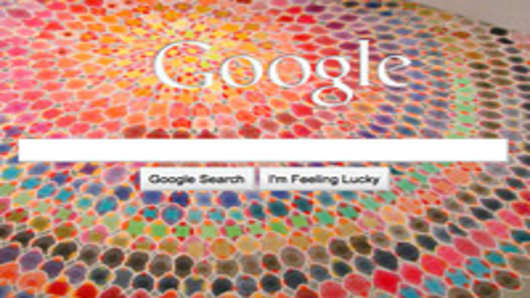Away from the controversy over Google’s decision to lower the already-low voting rights of average investors, try this one on: Google’s stock has a chance to beat Apple to the $1,000 finish line.
Or so says Ken Hackel of CT Capital in New Jersey, a Google investor and author of the book, “Security Valuation and Risk Analysis,” an investment bible for many serious investors.
In a world of fast-trading, Ken still invests the old-fashioned way: By the numbers with a special focus on cash flow and cost of capital.
When it comes to Google, he says: “Investors react as if they don’t understand business. Google had a good quarter. It continues to grow free cash flow by over 20 percent. Something wrong with that?"
“And that’s on top of a low valuation,” based on free cash flow. “Free cash flow for Google should reach over $22.5 billion in three years — or just a 14.4 multiple.”
Hackel acknowledges that in the race to $1,000, investors might find it hard to believe Google will win, but says: “Google actually has lower cost of capital due to its greater historical consistency relative to Apple .”
Part of that comes from more predictable cash flows than Apple, but also by virtue of Apple being more of a China story than Google — making Apple’s prospective cash flow that much more riskier.
He also doesn’t buy into the Apple TV concept. “Consumers won’t spend $1,500 for a TV,” he says. “Ask Corning. And retailers won’t eat the price the way mobile operators do with the iPhone.”
His bottom line: “To get to $1,000, Google shares need to rise by 53 percent, to $325 billion market cap. They currently produce almost $13 billion in free cash flow, after adjustments for overspending and misclassifications — stock based compensation, taxes, etc.”
At the same time, he says his models “are indicating that Apple, despite being the world’s largest public company, strongest credit, and having a striking short-term outlook, also now carries risk to its valuation, which should become apparent over the coming year. This includes size, sector, stability metrics, reliance on China, as well as political and consumer pressures related to its success.”
And if you’re wondering what he thinks of Facebook versus Google: “If you're thinking of buying Facebook, buy Google instead," he says. “It sells about 40 percent cheaper than the low range of Facebook.”
My take: Anytime I argue with Ken he just laughs and points to the numbers. We'll see if he is right this time.
Questions? Comments? Write to HerbOnTheStreet@cnbc.com
Follow Herb on Twitter: @herbgreenberg
Find Herb on Google+




